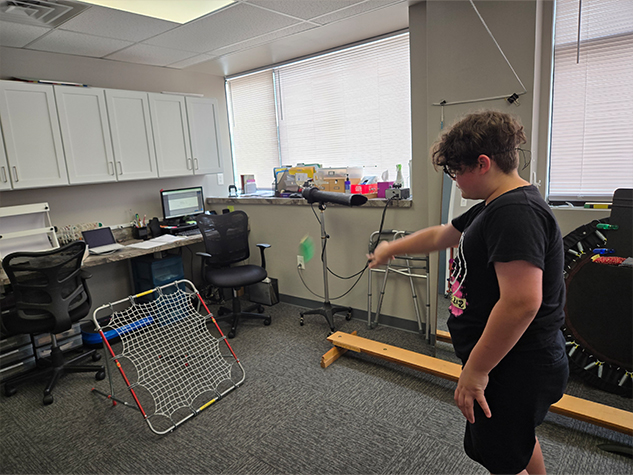
Holistic medical care is defined as an approach characterized by the treatment of the whole person rather than just the symptoms of a disease.
Our practice, Holistic Vision, embraces the complex nature of vision which integrates processing visual information, critical to our sense of balance, coordination, reading ability, mental focus, and visual comfort. Optimal visual function is dependent on a healthy nervous system and is affected by general wellness, nutrition, and stress management.
Holistic Vision considers the effects on vision of a person’s emotional, social and physical well-being as a basis to guide testing and treatment.
Holistic Vision Treatments include:
Binocular Vision Enhancement
Eye tracking technology
Holo Lens Therapy - augmented virtual reality
Micro prism and lens treatments
Neuro-Optometric Vision Rehabilitation
Occlusion therapies
Optometric Vision Therapy
Postural Restoration related vision care
Syntonic Light Therapy
Therapeutic lens tints
Z Bell/Zelinsky technique
Holistic Vision Evaluations are Recommended for:
Binocular Vision Dysfunction
Concussion and head trauma
Convergence Insufficiency
Crossed eyes (strabismus)
Depth perception difficulties
Difficult vision problems
Dizziness and balance issues
Double vision
Eye strain
Lazy eye (amblyopia)
Learning-related visual issues
Light sensitivity (photophobia)
Mears-Irlen Syndrome
Stroke
Vertical heterophoria

A multi-disciplinary approach, when indicated, means the inclusion of professionals from various specialties working together with your best interest and outcome in mind, because of the multi-faceted aspects of brain/vision issues the following therapies may be recommended:
Chiropractic Care
Functional Medicine
Massage/Acupuncture
Mind-Body Therapies
Neuro-psychology
Neurology
Nutritional Care
Occupational Therapy
Physical Therapy
Speech/Language Therapy

Contact Holistic Vision if you or your child, notice any of the following:
Avoids close work
Balance issues or dizziness
Blurry vision even with glasses
Cannot attend to visual tasks
Confuses/reverses numbers or letters
Double vision
Hand/eye coordination issues
Headaches related to reading
Loses place when reading
Squints to see
Tilts or turns head while reading
Visual memory issues
Vision is a learned skill. Because it is learned it can also be trained.








